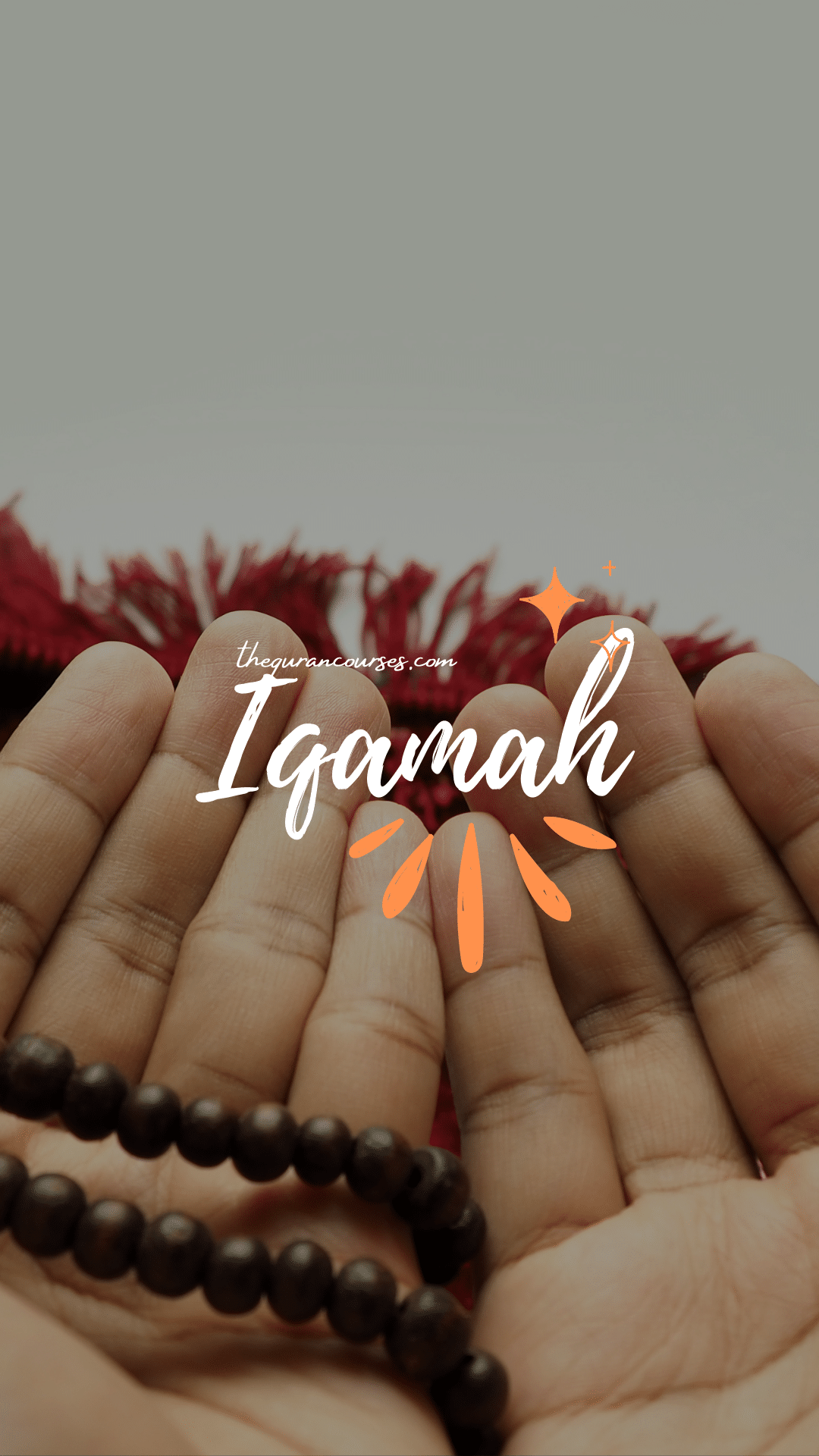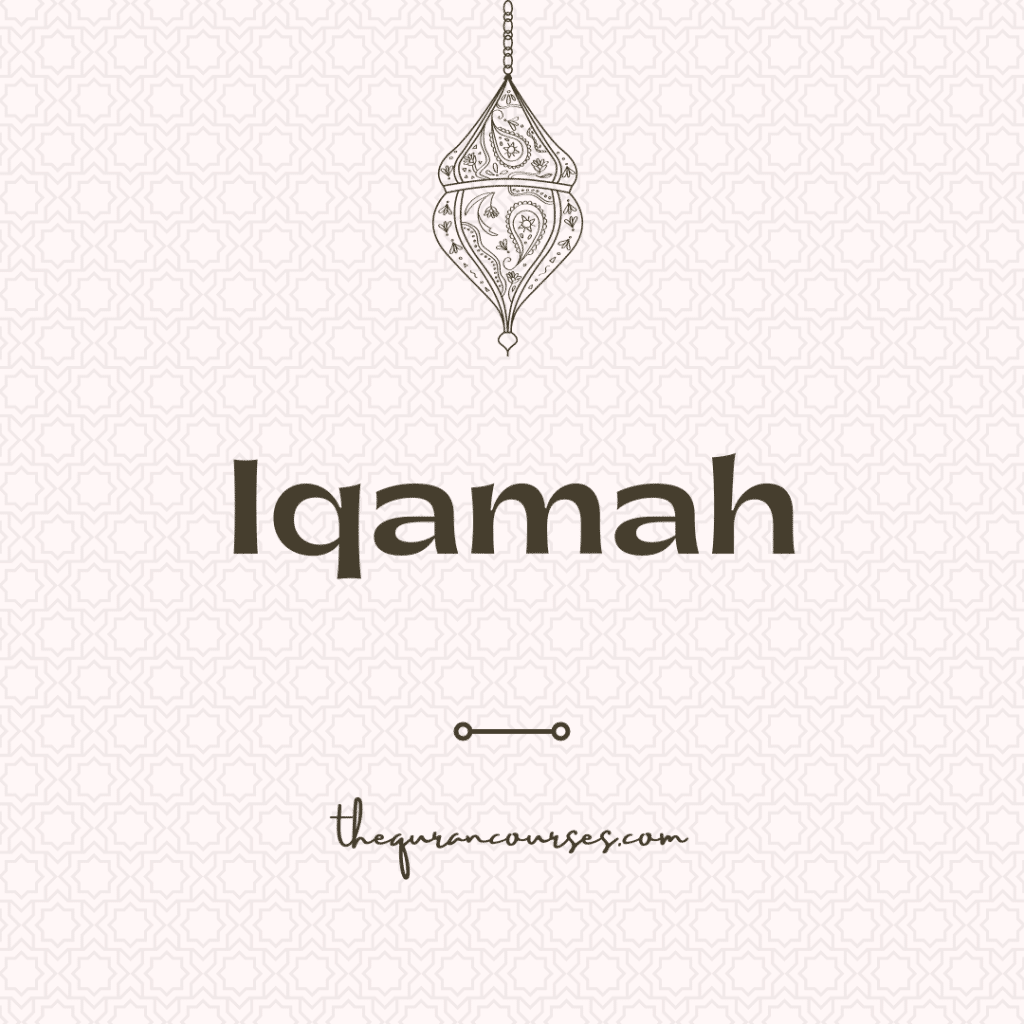The Iqamah (sometimes spelled Iqamah) is the Islamic second summons to salah (prayer), signaling that it is time to begin. After the first call to prayer, the Athan is repeated by a caller, generally the muezzin (also Mu’adhdhin) in a mosque (also Adhan). If you want to recite the Iqama, you should learn to say it independently or after a caller.
Iqamah
To begin the Iqamah, say “Allahu Akbar, Allahu Akbar.” “Allahu Akbar” is Arabic for “Allah is Greatest.”
To begin the second call to prayer, repeat the line twice.
If you obey the Hanafi or Shi’a schools of Islam, you’ll say this four times instead of two.
To honour Allah, say “Ash-hadu Alla ilaha illallah.” “I give witness that no one is worthy of worship save Allah,” it says. As you prepare to pray, recite it to express your loyalty to Allah.
Recite this line twice if you’re a Hanafi or Shi’a Muslim.
To honour Muhammad, say “Ash-hadu anna Muhamadan rasuulullah.” “I give witness that Muhammad is Allah’s Messenger,” it says. It reminds us that Muhammad is the last prophet to bring God’s teachings to the earth.
Say it twice if you’re a Hanafi or Shi’a Muslim.
As a reminder to come to prayer, say “Hayya ‘alas Salaah.” This means “come to the prayer,” It is a call to worship for the congregation.
If you’re a Hanafi or Shi’a, repeat this story twice.
As a recall of the value of prayer, call “Hayya ‘alal Falah.” “Come to affluence or success,” it means. It serves as a reminder that praying and following Allah’s rules can help you grow and succeed.
If you’re a Hanafi or Shi’a, repeat it twice.
Because “hayya” can also mean “rush,” this line could alternatively be read as “Rush to Success.”
As a reminder to pray, recite “Qad qaamati Salaah, Qad qaamati Salaah.” “Qad qaamati Salaah,” which you repeat twice, indicates “prayer is to begin.” It informs everyone that prayer time has arrived. At this point, the congregation usually takes up their prayer stance. This statement might also be read as “Prayer has begun.”
If you are not the one calling the Iqama, you should not utter line words.
“Allaahu Akbar, Allaahu Akbar,” repeat after Allah. “Allahu Akbar” is Arabic for “Allah is Greatest.” Say it twice before each prayer to glorify Allah and remind yourself of Islam’s teachings.
At the beginning and finish of the Iqama, you honor Allah.
“Laa ilaaha illallah,” concludes the call to prayer. “There is no god worthy of worship but Allah,” it says. Say it to express your loyalty to Allah and to glorify Him. It completes the Iqama, signaling the start of the prayer.
As a Ritual, Doing the Iqamah

When you’re praying in a congregation, recite the Iqama. The Iqamah is usually read aloud by the muezzin (Mu’adhdhin) at your mosque. They could even say it over a loudspeaker. To glorify Allah and prepare oneself for prayer, join them in saying the call to prayer.
Unless it’s customary in your mosque, don’t say “Qad Giamatti Salaah, Qad Giamatti Salaah.” This sentence, which means “Prayer is to Begin,” is usually exclusively told by the person conducting the Iqama.
If you’re praying alone, say the call to prayer as a reminder. The Iqama is intended to alert the entire audience that it is time for prayer, but it also reminds you of Islam’s beliefs. While reciting the Iqama to yourself is not necessary, it is beneficial for strengthening your faith and developing excellent Islamic habits. If you like, include it in your private prayers.
Even if only one other person is praying with you, it is best to say the Iqama. In that circumstance, the most knowledgeable follower should lead the prayer. If both men and women are present, the Iqama is traditionally led by a man.
During the Iqama, keep your arms at your sides. You usually cover your ears with your hands during the Athan. During the Iqama, this isn’t necessary. Instead, prepare yourself for prayer by straightening your arms to your sides.
Recite it fast and monotonously in a low voice. The Athan is a loud call to prayer, whereas the iqama is a quiet call to worship. Reduce your voice to a chanting, repetitive tone. Then, to begin your prayer, say the prayer rapidly. Follow the muezzin’s (Mu’adhdhin) lead if you’re at a mosque.
Pause between the verses of the Iqamah if you follow the Maliki school, which slows your prayer.
Athan’s life story
During the first year of the Muslims’ migration to Notifying, the ‘Athan’ was incorporated into’sharee’ah’ (Islamic jurisprudence). Muslims used to agree on onset times for congregational prayers before the legislation. Even yet, people occasionally had trouble remembering the exact times.
Its qualities and excellence
The attributes of the ‘Athan’ and the one who calls it are described in several Prophetic narratives. the first line in congregational prayer), and that they could only acquire it by drawing lots, they would draw lots…” said the Prophet sallallaahu ‘Alayhi wa Sallam (may Allah elevate his mention). [Al-Bukhari]
The definition of Iqamah

- I testify that Allah is the one deity (worthy of worship).
- Muhammad is Allah’s Messenger, as I bear witness.
- Come to the prayer, and you will be prosperous.
- Prayer must start, prayer must start.
- Allah is the only deity deserving of devotion.
After Hayya ‘alal-Falah, Hayya ‘alal-Falah, it is part of the morning ‘Athan’ to repeat twice, ‘assalatu khayrun mina-nawm (prayer is better than sleep).
After Athan, supplications
“Supplications (presented) in between the (two) summons for prayer (i.e., Athan and Iqamah) would never be refused,” stated the Prophet Sallallahu ‘Alayhi wa Sallam (may Allah glorify his mention). “O Prophet of Allah!” the companions exclaimed. May Allah be pleased with them. “How do we respond?” “Ask Allah the Almighty to grant pardon (and good health) in both this life and the next,” he added, sallallaahu ‘Alayhi wa Sallam (may Allah glorify his mention).
“Any individual who, on reading the Athan, supplicates: “Allahumma Rabba hath hid-da’watit-teammate was-salatil-qa’imati, ati Muhammadan al-waseelata wal-fadheelata wab’ath-hu maqamat mahmudanal-lathee wa’adtahu maqamat Mahmud (‘Allah!’) Lord, please hear our entire prayer. Offer Muhammad the blessings of it.
Read More: Does chewing gum break a fast in Islam?




Your insights have been incredibly helpful and have made a significant difference in my understanding of Iqamah. Your dedication to helping others is an inspiration, and I cannot thank you enough for the time and effort you have invested in providing such beneficial information.